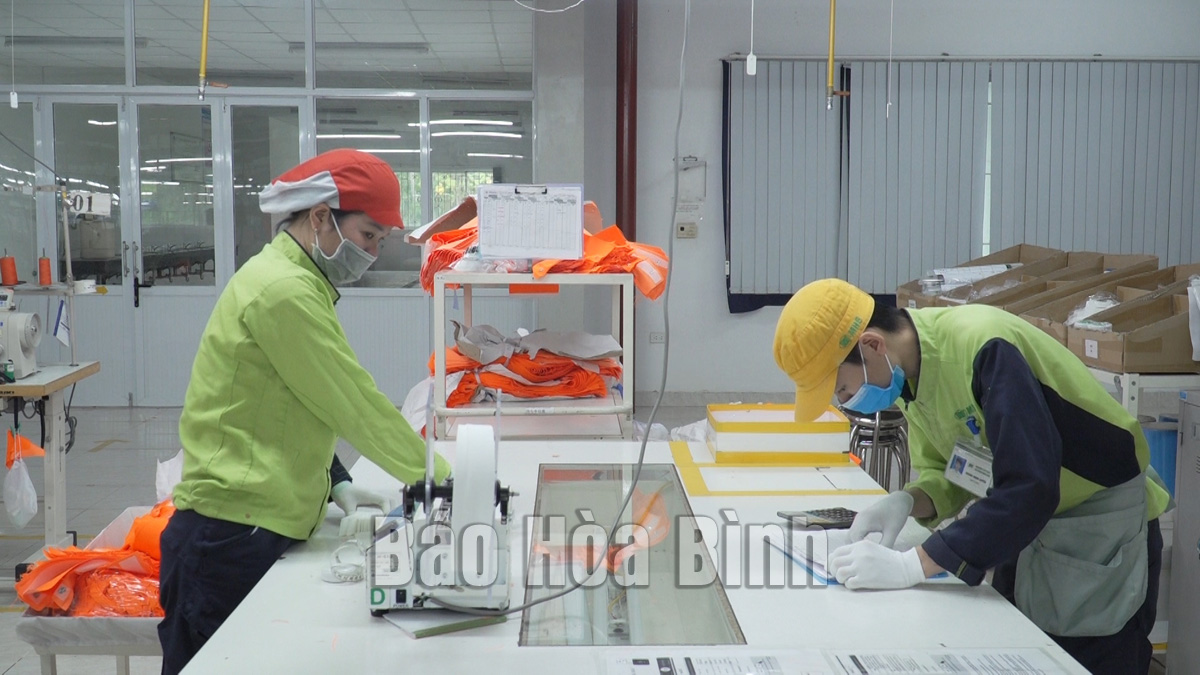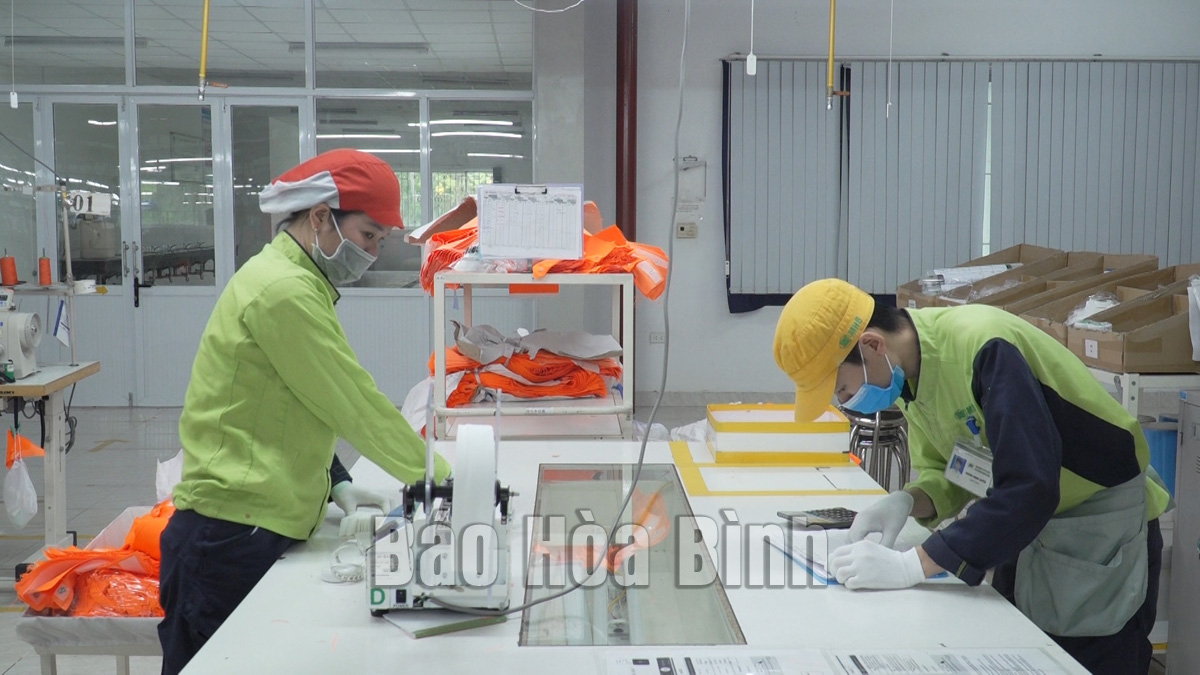
(HBO) – The Party Committee and people in Hoa Binh province have joined national efforts in the COVID-19 combat and gained significant achievements.

Local authorities have taken synchronous solutions
to safely and flexibly adapt to and effectively control the pandemic, ensuring
the public’s health and socio-economic activities at the same time.
Over the past month, departments, agencies and
districts have worked hard to complete the assigned tasks, contributing to
socio-economic recovery and development. By the end of January, State budget collection was
around 700 billion VND (30.68 million USD), a rise from the same period last
year. The disbursement of public investment fulfilled 96 percent of the target
set by the Prime Minister Pham Minh Chinh, reaching 3.37 trillion VND, up 20
percent year-on-year.
The provincial People’s Committee issued Directive
No. 03/CT-UBND dated January 18 on tasks and solutions to implement the 2022
socio-economic development plan and State budget estimate.
The committee reported that the COVID-19 pandemic is
taking place complicatedly in the province, with increases in both new and
severe cases.
There remain limitations in the management of
COVID-19 patients and those who have close contact with the patients, the
committee said, adding that many have yet to seriously observe the Health
Ministry’s "5K message” - khau trang
(facemask), khu khuan (disinfection), khoang cach (distance), khong tu tap (no
gathering) and khai bao y te (health declaration).
Secretary of the Party Committee Ngo Van Tuan said
2022 is the second year to implement resolutions adopted at all-level Party
Congresses, and called for efforts to fulfill targets set in the resolutions.
Local farmers and businesses have resumed their
operations after the nine-day Lunar New Year (Tet) holiday. Trade and tourism
activities have also come back to their normalcy. Meanwhile, officers, soldiers
and those serving the frontline of the pandemic combat are working hard to
protect health of the public.
To successfully complete the set targets and create breakthroughs,
it requires great efforts and resolve of each resident, as well as their
innovations./.
According to data from the Hoa Binh Provincial Party Committee, the industrial production index for the first six months of 2025 is estimated to have increased by 20% compared to the same period last year. This marks the highest year-on-year growth rate for this period since 2020.
In the first six months of 2025, Hoa Binh province’s export turnover was estimated at 1.145 billion USD, marking an 18.11% increase compared to the same period in 2024. Import turnover was estimated at $ 804 million, a 17.15% increase, which helped the province maintain a positive trade balance.
The lives of the ethnic minority farmers in Tan Lac district have gradually improved thanks to the new directions in agricultural production. This is a testament to the collective strength fostered through the professional associations and groups implemented by various levels of the district’s Farmers’ Union.
With the motto the "product quality comes first,” after nearly one year of establishment and operation, Muong village’s Clean Food Agricultural and Commercial Cooperative, located in Cau Hamlet, Hung Son Commune (Kim Boi district), has launched reputable, high-quality agricultural products to the market that are well-received by consumers. The products such as Muong village’s pork sausage, salt-cured chicken, and salt-cured pork hocks have gradually carved out a place in the market and they are on the path to obtaining the OCOP certification.
In the past, the phrase "bumper harvest, rock-bottom prices" was a familiar refrain for Vietnamese farmers engaged in fragmented, small-scale agriculture. But today, a new spirit is emerging across rural areas of Hoa Binh province - one of collaboration, organisation, and collective economic models that provide a stable foundation for production.
Maintaining growing area codes and packing facility codes in accordance with regulations is a mandatory requirement for agricultural products to be eligible for export. Recently, the Department of Agriculture and Environment of Hoa Binh province has intensified technical supervision of designated farming areas and packing facilities to safeguard the "green passport" that enables its products to access international markets.



